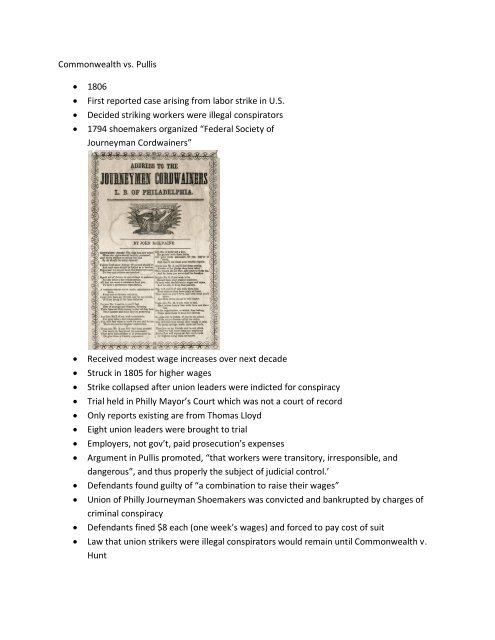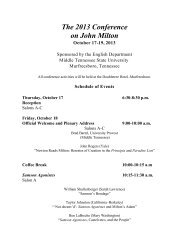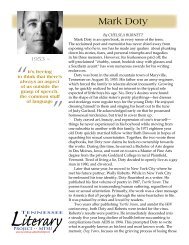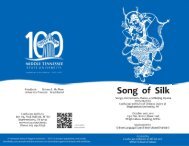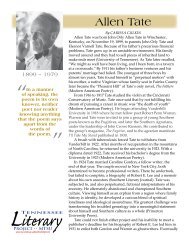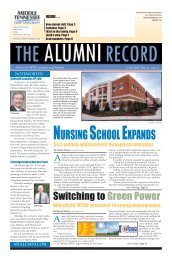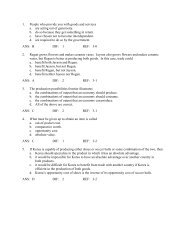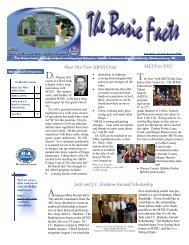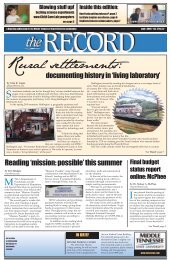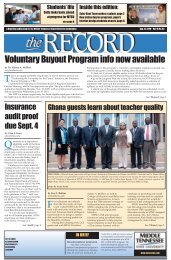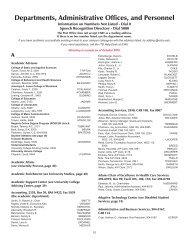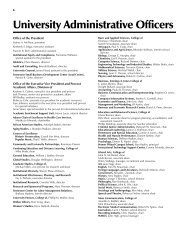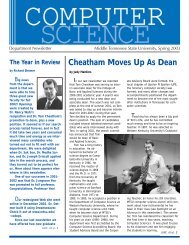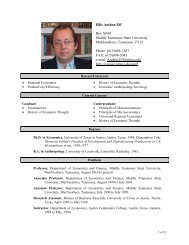Commonwealth vs. Pullis • 1806 • First reported case arising from ...
Commonwealth vs. Pullis • 1806 • First reported case arising from ...
Commonwealth vs. Pullis • 1806 • First reported case arising from ...
You also want an ePaper? Increase the reach of your titles
YUMPU automatically turns print PDFs into web optimized ePapers that Google loves.
<strong>Commonwealth</strong> <strong>vs</strong>. <strong>Pullis</strong><br />
<strong>1806</strong><br />
<strong>First</strong> <strong>reported</strong> <strong>case</strong> <strong>arising</strong> <strong>from</strong> labor strike in U.S.<br />
Decided striking workers were illegal conspirators<br />
1794 shoemakers organized “Federal Society of<br />
Journeyman Cordwainers”<br />
Received modest wage increases over next decade<br />
Struck in 1805 for higher wages<br />
Strike collapsed after union leaders were indicted for conspiracy<br />
Trial held in Philly Mayor’s Court which was not a court of record<br />
Only reports existing are <strong>from</strong> Thomas Lloyd<br />
Eight union leaders were brought to trial<br />
Employers, not gov’t, paid prosecution’s expenses<br />
Argument in <strong>Pullis</strong> promoted, “that workers were transitory, irresponsible, and<br />
dangerous”, and thus properly the subject of judicial control.’<br />
Defendants found guilty of “a combination to raise their wages”<br />
Union of Philly Journeyman Shoemakers was convicted and bankrupted by charges of<br />
criminal conspiracy<br />
Defendants fined $8 each (one week’s wages) and forced to pay cost of suit<br />
Law that union strikers were illegal conspirators would remain until <strong>Commonwealth</strong> v.<br />
Hunt
<strong>Commonwealth</strong> <strong>vs</strong>. <strong>Pullis</strong> involved charges by the state of Pennsylvania alleging the<br />
negative impact of labor disputes on the community and the illegality of workers taking<br />
the law into their own hands, as expressed in following language by the presiding judge:<br />
We live under a government composed of a constitution and laws...and every man is<br />
obliged to obey the constitution, and the laws made under it....Shall these, or any other,<br />
men associate for the purpose of making new laws, laws not made under the<br />
constitutional authority, and compel their fellow citizens to obey them, under the<br />
penalty of their existence?...If private associations and clubs can make constitutions and<br />
laws for us...if they can associate and make bye-laws paramount, or inconsistent with<br />
the state laws; what, I ask, becomes of the liberty of the people, about which so much is<br />
prated, about which the opening counsel made such a flourish?<br />
Hence the decision against the cordwainers was as follows:<br />
We cannot and we must not forget that the law of the land is the supreme, and only<br />
rule. We live in a country where the will of no individual ought to be, or is admitted, to<br />
be the rule of action....There is but one place to determine whether violations or abuses<br />
of law have been committed. It is in our courts of justice; and there only after proof to<br />
the fact: and consideration of principles of law connected with it.


